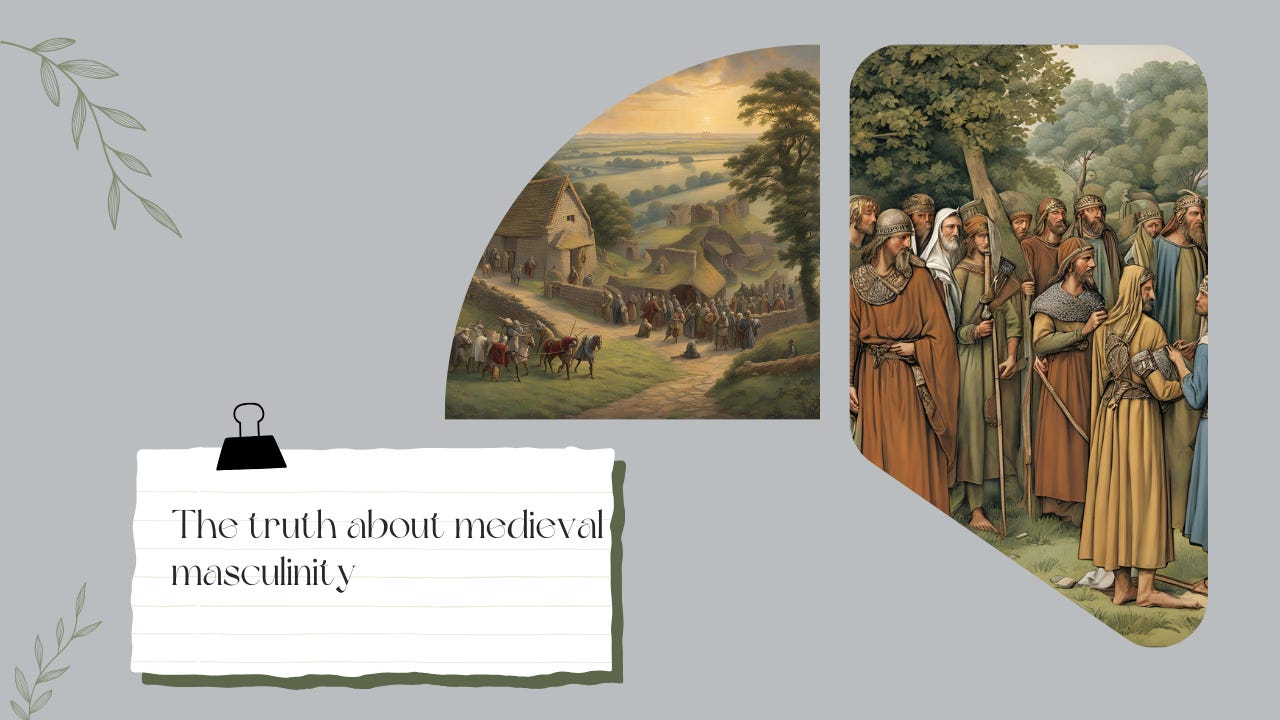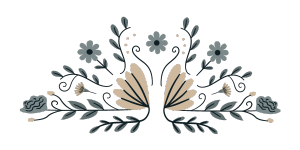The Truth About Medieval Masculinity
Exploring Vulnerability In The Poetry Of Our Ancestors
We find it very important today to share our experiences, often as a way of validating and healing. Social media encourages us to bring our feelings into the light, when we are comfortable and with trusted people: we find that a problem shared really can be a problem halved.
Men are beginning to open up to each other about how they are feeling, perhaps in response to sky high rates of male suicide (in 2015 in the UK, it was the leading cause of death for males age 5-49).1 I was struck listening to a podcast with my husband a few years ago, in which two men talked about the pressures often faced by men in the lead up to Christmas. Debt, being able to provide adequately, others’ perceptions of them as husbands and fathers, work, alcohol consumption… I’d been married for a long time at this point - but this was the first time I had ever heard from a man some of the reasons why their mental health can be adversely affected.
This is why I love the work being done by
, sharing interviews with men that focus on counter-cultural expressions of masculinity.But did you know that medieval men felt and shared their emotions too?
This article, taken from the archives and expanded with new reflections, forms part of an ongoing theme here at
devoted to sharing a more rounded picture of medieval masculinity. Previous articles have opened up well-known sources in a new light, showing how they reveal softer, more emotionally vulnerable sides to individuals we might more readily associate with the macho, battle-hardy portrayals in Netflix dramas such as The Vikings or The Last Kingdom, or the pathetic, comical individuals of satirical films.You can read some of these articles here, though the full archive is available on the
homepage:Male vulnerability is hidden in plain sight in our well-loved Anglo-Saxon tales.
Check out this extract from the epic poem Beowulf, in which the graveside grief of a group of warriors is described:
Then twelve warriors rode around the tomb, chieftains' sons, champions in battle, all of them distraught, chanting in dirges, mourning his loss as a man and a king. They extolled his heroic nature and exploits and gave thanks for his greatness; which was the proper thing for a man should praise a prince whom he holds dear and cherish his memory when that moment comes when he has to be convoyed from his bodily home. So the Geat people, his hearth-companions, sorrowed for the lord who had been laid low.2
Another translation describes the same scene in the following way:
Then twelve brave warriors, sons of heroes, rode round the barrow, sorrowing; they mourned their king ... Thus the Geats, his hearth-companions, grieved over the death of their lord.3
Did you notice the words used to describe the way these ‘brave warriors, sons of heroes’, ‘champions in battle’, felt when faced with the death of their lord?
Distraught. Mourning. Sorrowful. Grieved.
Note too the very public nature of this grieving ritual. This was twelve men on horseback wailing as they circled the tomb. This wasn’t a private moment of grief behind closed doors; far from it.
This reminds me of a section of The Wife’s Lament, another Anglo-Saxon poem I shared recently, which suggests that even when men couldn’t be public about their feelings, they still felt them:
Young men must always be serious in mind and stout-hearted; they must hide their heartaches, that host of constant sorrows, behind a smiling face.4
I mean, that really could have been written today couldn’t it? It feels so contemporary, the idea that men should maintain an appearance of stability even if they are falling apart inside - while recognising that men do experience ‘heartaches’ and ‘sorrows’. The suggestion is, perhaps, that that despite appearances to the contrary men were feeling big feelings, that the poet in no way implies are wrong.
Yet this was written more than a thousand years ago, just like the extract from Beowulf. Medieval men cried too, just like men do today (and should feel comfortable to do so publicly). Sometimes they poured out their grief; sometimes they felt compelled to hide it ‘behind a smiling face’, a sentiment that has led so many to take drastic action in our own time, leaving it too late to open up.
Sometimes, as in these two extracts, they preserved it in poetic form, a medium that continues to provide healing for those unable to express their feelings any other way. There seems to be something about the fluidity and metaphorical language of poetry that gives it a capacity to transform our innermost groans into words, songs even. And it seems that this solace transcends time, pouring balm over hurting souls over a millennium before our own time, when modern media would have us believe they were all heartless savages hungry only for treasure and battle-glory.
The sources suggest, to me at least, that many of them were actually hugely emotionally vulnerable, warring with many of the hurts and loves that men today experience.














Love, love, love this, Holly! And your voiceover is fantastically done. Just, bravo!
Medieval letters often get me in a chokehold. The expressive language, though expected, scripted, and performed, was also so freely given. You said what you felt because the certainty of tomorrow was never there, and to me, that was just a beautiful showing of humanness.
Thank you for highlighting the 'men performing masculinity' series. I am so grateful for you. ❤️
I think the existence of all that poetry, and all those songs those lords would have delighted in, lovesongs especially, admirably proves your point! Knights and suchlike don't risk everything in pursuit or rescue of love unless they know how to love, methinks...